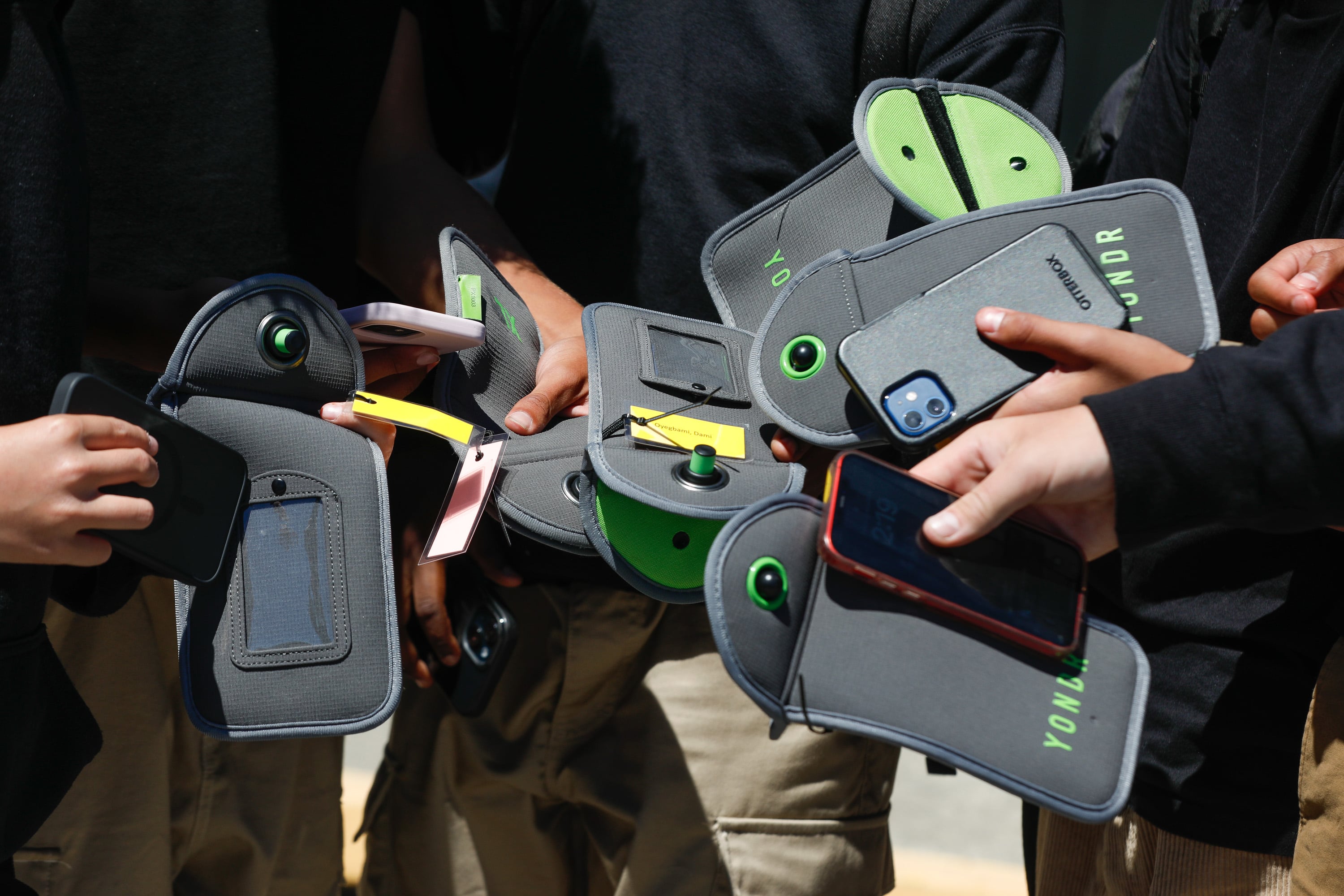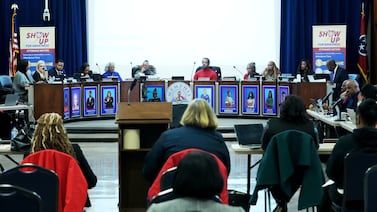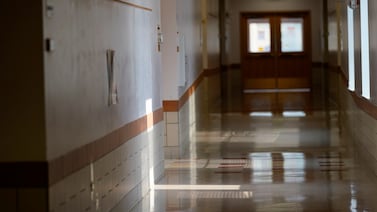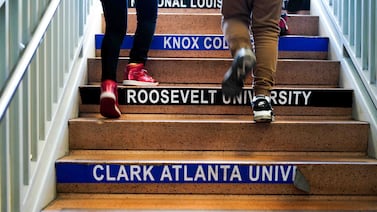Sign up for Chalkbeat New York’s free daily newsletter to get essential news about NYC’s public schools delivered to your inbox.
Gov. Kathy Hochul’s proposal to limit student access to cellphones during the school day would require all New York City public schools to implement a ban on devices by the start of the next school year.
It’s part of a broader effort by Hochul to establish a “distraction-free” learning environment, and to encourage students to spend less time online amid concerns over the impact of social media on student mental health.
The proposed legislation was unveiled by the governor during a budget presentation earlier this week.
Though the city’s Education Department seemed poised to implement a systemwide ban last summer, Mayor Eric Adams pumped the brakes on that plan — spurred in part by concerns over the costs of implementation. Parents also expressed fears about losing their ability to contact students directly in emergency situations.
Instead, the Education Department partnered with the city’s Health Department to conduct a study on school cellphone restriction policies.
Currently, the city allows principals to make their own decisions about whether and how schools will limit access to cellphones during the school day. About 850 city schools had implemented or were planning to implement cellphone restrictions, city officials said last year. Some schools collect devices each morning, while others provide students with locking pouches.
Hochul’s sweeping proposal would leave the specifics of the policies in the hands of school districts, giving local officials some degree of control over how the policy might operate in practice in New York City.
Still, new details released by the governor on Wednesday offer a closer look at the potential policy. Here’s what families should know:
How would a school cellphone ban work?
Under the proposed legislation, school districts would be required to adopt a written policy prohibiting the use of “internet-enabled devices” by students on school grounds from “bell to bell,” including during class time, lunch, and in the hallways.
Each school district can determine the specifics of its policy, including how schools will store student devices and ensure compliance. But the district policies must identify at least one method through which students can store their devices during the school day, with the bill noting that student lockers could be included as an option.
School districts would also be required to report annually on discipline as a result of the policy, with action required if that report reveals inequities in enforcement. Some advocates previously expressed concerns about equity issues related to enforcement.
When would the proposed legislation go into effect?
School districts must adopt a cellphone policy and publish it on their websites by Aug. 1, 2025, according to the bill.
What student devices are prohibited under the proposed legislation?
The cellphone restrictions would apply to all “internet-enabled devices,” including smartphones, tablets, smartwatches, and any other device able to connect to the internet.
The proposal would not apply to phones that are unable to connect to the internet, or internet-enabled devices supplied by the school district for educational purposes.
Would some students receive exemptions?
Students with disabilities, as well as others who rely on digital devices for medical reasons or translation purposes, would be allowed exemptions from the policy.
The legislation also allows districts to include exceptions for when teachers direct students to use devices for educational purposes, or in case of emergencies.
How would parents get in touch with their kids during the school day?
Each school district’s cellphone policy would be required to include one or more ways for parents and guardians to get in touch with their students during the school day.
The proposed legislation also requires schools to send parents written notice of these methods at the start of each school year.
State officials also recommended districts update or establish emergency notification protocols so parent expectations remained clear.
Will schools receive funding to implement cellphone restrictions?
Hochul’s proposed state budget allocates $13.5 million to help schools cover costs associated with cellphone restrictions, like paying for storage or digital locking pouches developed by companies like Yondr.
If approved, schools would access the funds by requesting reimbursement when purchasing phone storage items, according to Hochul’s office.
Does the policy apply to charter and private schools?
The proposed legislation would apply to charter schools. It would not apply to private schools.
How should districts approach developing a cellphone policy?
Hochul’s office released a set of guidance to help school districts approach developing their cellphone policies.
The suggestions include involving students, parents, teachers, and administrators in conversations about the policy, clearly defining its scope and expectations, communicating with parents regularly, and monitoring and adjusting the policy as necessary to ensure it is effective and equitable.
State officials also advised school districts to develop a clear plan for discipline, ensuring students understand the consequences of failing to comply with the policy.
How can schools support device-free students?
The guidance also included advice for schools seeking to build student engagement as students lose access to devices at school. Among the suggestions: promoting school clubs, sports, and the arts, allowing teachers to offer lessons outside the classroom, and providing games when kids are out of class.
Julian Shen-Berro is a reporter covering New York City. Contact him at jshen-berro@chalkbeat.org.






